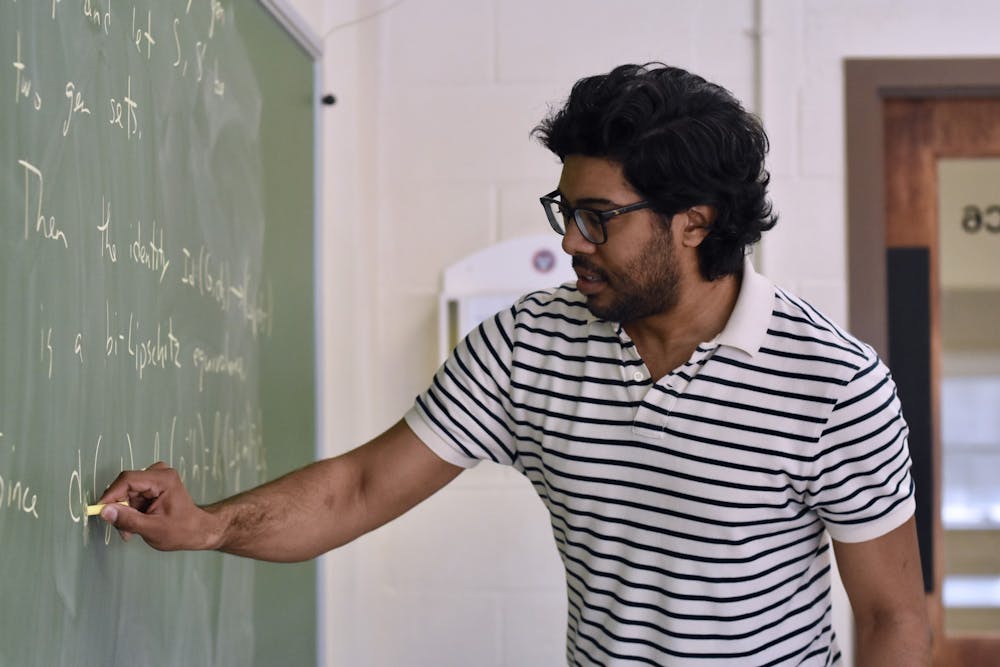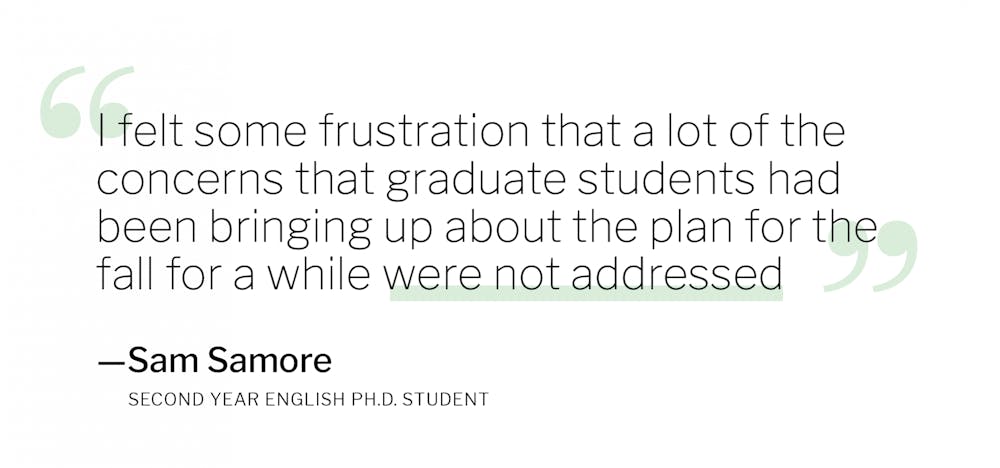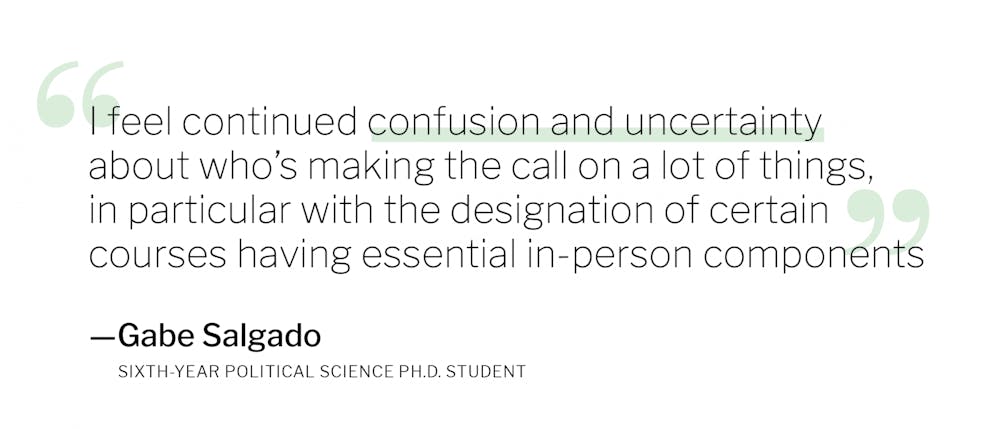
This fall, no teaching assistants will be required to hold a course in person if they feel uncomfortable doing so.
Credit: Ari StonbergSome graduate students who are currently weighing whether to teach courses in person this fall expressed confusion and frustration over the lack of support for graduate and professional students as outlined in Penn's fall 2020 plan.
Under Penn’s hybrid model announced on June 25, all classes with 25 or more students will be taught virtually in an effort to contain the spread of the coronavirus. Classes with fewer than 25 students, including many recitations taught by graduate students, may be held in person at the discretion of the professor and teaching assistant, if space permits.

In an email sent on June 25 to fall 2020 instructors and TAs in the School of Arts and Sciences, SAS Dean Steven Fluharty, College Dean Paul Sniegowski, and Associate Dean for Graduate Studies Beth Wenger wrote that no instructor or TA will be required to hold a course in person if they feel uncomfortable doing so for healthy, safety, or family reasons.
If a professor or TA does choose to conduct a class in person, students and teachers must wear face coverings at all times, the email read. Students will be spaced apart in the classroom and instructors will teach from behind a plexiglass screen.
Rising second-year English Ph.D. student Sam Samore will be assisting a professor in grading and preparing course materials for ENGL 073: Radical Arts in the Americas, which will be taught virtually because it exceeds the maximum enrollment for in-person instruction.
Samore said while they feel the English department has been communicative about plans for the fall, the University still has not prioritized the needs of graduate students or met the demands of GET-UP, the union of graduate student workers at Penn.
The group is calling for increased support in the form of extended fellowship funding for graduate students, tuition refunds for professional students, and transparency about the University's hiring freeze.
Provost Wendell Pritchett and Executive Vice President Craig Carnaroli announced in April that Penn would institute a University-wide hiring freeze for fiscal year 2021 in order to reduce costs.
In May, more than 200 professors signed a petition calling on Penn to provide graduate and professional students with additional time and funding to complete their programs.
“I felt some frustration that a lot of the concerns that graduate students had been bringing up about the plan for the fall for a while were not addressed,” Samore said. “This is a time when it's especially apparent that it would be so useful for more graduate students to be able to negotiate with the University.”
Rising sixth-year political science Ph.D. student Gabe Salgado will be the primary instructor for PSCI 181: Modern Political Thought in the fall. Salgado said he originally planned on teaching his course completely online because his partner is immunocompromised.
“It is unclear to me how a lot of the decisions about how this hybrid model will operate are actually going to be made,” Salgado said. “I feel continued confusion and uncertainty about who’s making the call on a lot of things, in particular with the designation of certain courses having essential in-person components.”
In light of Monday's United States Immigration and Custom Enforcement announcement that international students will be prohibited from staying in the country if they are taking an entirely online course load at their university this fall, however, Salgado said he may modify his initial decision to hold his course online in order to protect students from deportation.

Rising fourth-year religious studies Ph.D. student Aditya Bhattacharjee, who will be a TA for RELS 013: Gods, Ghosts, and Monsters, said the Religious Studies department is planning on holding his recitations in person as of now. Bhattacharjee said he is happy with this current plan, because he feels that maintaining a sense of community while on campus is important for students’ mental health.
“Based on my experience teaching a class last semester, many students that I worked with really missed being on campus,” Bhattacharjee said. “They missed interacting with their fellow peers and professors and TAs, especially for students who weren't so supported back in their home environment.”
Rising fourth-year chemistry Ph.D. student Borna Saeednia will likely be a TA for CHEM 241: Principles of Organic Chemistry in the fall, and he said his recitations will be conducted online. In the spring semester, Saeednia was a TA for CHEM 245's lab section, and he said he learned a lot about teaching virtually when classes moved online after spring break.
While Saeednia hopes to make his students feel more comfortable learning in an online setting this fall, he believes that lab courses should be canceled if they cannot be conducted in person.
“My experience generally speaking, is that the quality of education, despite the amount of effort that we put in, was compromised to some extent,” Saeednia said. “The lab course is intended to improve their lab skills in real life, and that part of the experience is completely missing.”
The Daily Pennsylvanian is an independent, student-run newspaper. Please consider making a donation to support the coverage that shapes the University. Your generosity ensures a future of strong journalism at Penn.
Donate






